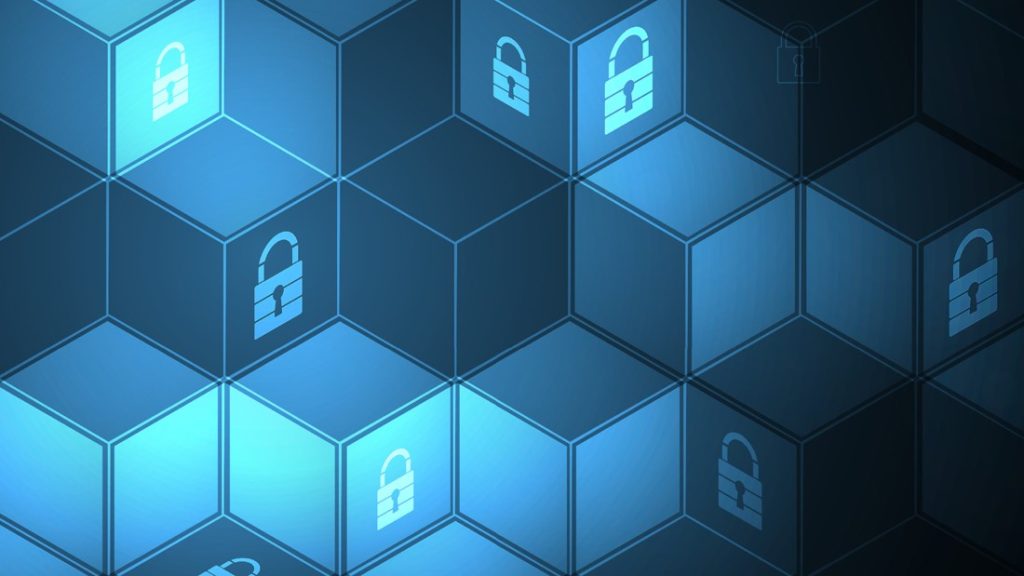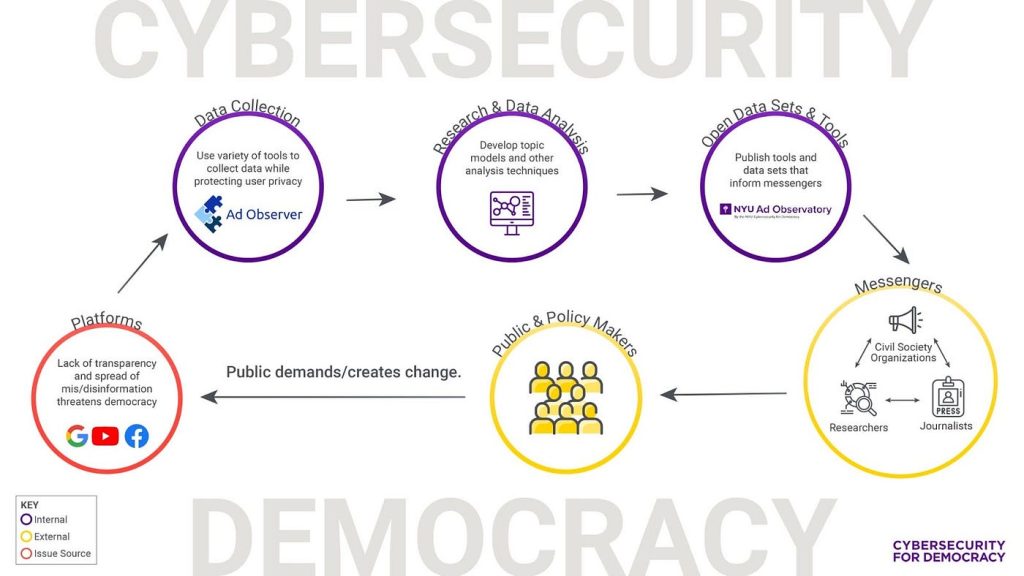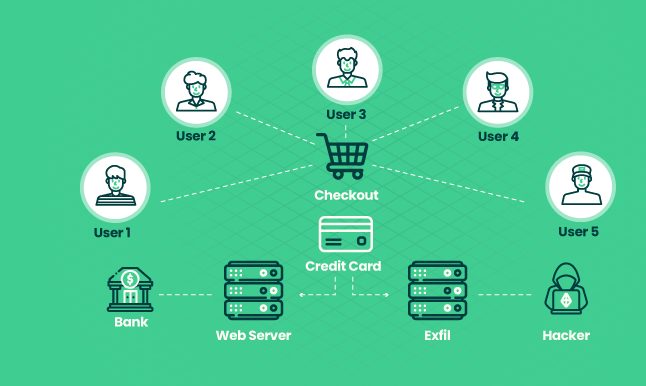In an increasingly digital world, safeguarding your virtual life has become as crucial as locking your front door. Cybersecurity is no longer an afterthought, but an essential part of our daily lives. Imagine a realm where all your most treasured data—your baby’s first photos, your company’s financials, or your latest medical records—could be infiltrated and manipulated with ease. This article delves into the multifaceted aspects of cybersecurity, demystifying why is cyber security important, understanding the role of cyber security, and exploring the numerous benefits of cyber security that often go unnoticed.
The Digital Fortress: Why Cybersecurity is Non-Negotiable
In an era where almost everything is connected to the internet—from your smartphone to your refrigerator—protecting these digital assets is critical. Cyber security needs are like a digital fortress that keeps the attackers at bay. Just like we wouldn’t consider leaving our physical homes unlocked, why would we leave our digital homes unprotected? Cybersecurity should be viewed as an investment rather than a cost, one that ensures the seamless operation of our daily lives.
Institutions and corporations have grown increasingly reliant on digital networks for the functionality of their operations. Any breach could potentially lead to devastating consequences such as financial loss, data corruption, and reputation damage. With increasing threats from ransomware to phishing scams, it’s clear that robust cybersecurity measures are a must.
On the individual level, the need for security in our personal digital realms is equally compelling. Be it your social media accounts or online banking, each demands a secure protective layer to guard against unauthorized access and cyber threats. The importance of cybersecurity extends to protecting personal identities, preserving data integrity, and ensuring privacy.
The crux here is that cybersecurity is an enabler, allowing us to use the internet with confidence. It fosters trust, enhancing user experience by ensuring a secure and reliable environment. Thus, it has become a backbone for a flourishing digital society.
Our world is continually evolving, and so are the cybersecurity threats that come with it. The advantages of cyber security aren’t just about avoiding danger; they’re about enabling us to use technology in the safest manner possible.

The Economic Pillar: Cybersecurity in the Business World
When you think of digital transformation, what comes to mind? Cutting-edge technology, efficiency, and interconnectivity might be at the forefront. However, what often gets overlooked is the importance of cyber security in this equation. A business is only as strong as its weakest link, and in the digital age, that link is often cybersecurity—or the lack thereof.
Businesses, small and large alike, are prime targets for cyberattacks. This is because they often store massive amounts of data and financial information. From customer databases to proprietary technology, the stakes are high, and thus the protection should be robust. A breach could lead not just to immediate financial loss, but also to long-lasting reputational damage.
Yet, cybersecurity is still often perceived as a cost rather than an investment in many businesses. In reality, the benefits of cyber security for businesses far outweigh the costs. One of the most significant advantages is the prevention of data loss, which would otherwise lead to financial repercussions and loss of customer trust.
Moreover, a strong cybersecurity framework enhances business credibility. Customers are more likely to trust a business that protects their data well, compared to one that has suffered from a significant breach. This builds brand equity, which is invaluable in today’s competitive marketplace.
Another angle to consider is regulatory compliance. Governments and other regulatory bodies are ramping up the laws surrounding data protection. Non-compliance doesn’t just result in fines, but also risks putting the company into a complicated legal situation. Thus, one of the vital cybersecurity benefits is helping businesses remain compliant, avoiding legal entanglements and subsequent financial penalties.
With advancements in machine learning and artificial intelligence, cybersecurity measures have now evolved to be more agile and adaptive. This allows businesses to be one step ahead of potential threats, safeguarding their assets efficiently. In the grand scheme of things, cybersecurity acts as an enabler, facilitating digital transformation securely and effectively.

The Individual Shield: Protecting Personal Lives
Often, when we talk about cybersecurity, our focus is mostly on corporations and governments. But what about the individual user? For them, why do we need cybersecurity? Let’s dive into the world of individual users and understand how cybersecurity benefits them, sometimes in ways they might not even realize.
Many people have a treasure trove of personal information stored online—from social media accounts to cloud storage filled with family photos. One common mistake people make is using the same password across different platforms. Here, even a single breach can have a domino effect, compromising multiple accounts. This is why cybersecurity measures like two-factor authentication have become increasingly important.
But the significance doesn’t stop there. Cybersecurity plays a pivotal role in protecting against identity theft. When personal information like social security numbers or credit card details falls into the wrong hands, it can lead to devastating outcomes. Strong cybersecurity measures ensure that this sensitive data remains uncompromised.
In addition, cybersecurity also comes into play during online transactions. From ordering groceries to booking flights, we make countless transactions online. Each of these requires an exchange of financial information, which needs to be securely transmitted and stored. Here, cybersecurity technologies like SSL certificates and end-to-end encryption play a crucial role.
Our digital life is not confined just to desktops and smartphones; it extends to various smart devices we use—like smart TVs, thermostats, and even refrigerators. Known as the Internet of Things (IoT), these devices also require robust cybersecurity measures to prevent unauthorized access and data theft.
Beyond data protection, cybersecurity also safeguards your digital freedom. From maintaining the confidentiality of your private conversations to ensuring your location isn’t being tracked without your consent, it acts as a guardian of your digital life.
In summary, the role of cyber security for individuals goes beyond mere protection; it acts as an enabler, allowing people to live their digital lives freely and securely.
The Sentry of Democracy: Cybersecurity in Governance
In the realm of governance, the role of cyber security can’t be overstated. Governments around the world hold immense volumes of sensitive data, ranging from citizen records to national security details. The loss or manipulation of this data could have catastrophic consequences, potentially destabilizing nations.
Governments are increasingly becoming targets for state-sponsored cyberattacks, where the stakes are not just financial, but geopolitical. These attacks can range from electoral interference to the theft of classified military secrets. Here, cybersecurity acts as the frontline defense, ensuring the integrity of governance processes.
One of the most significant challenges governments face is maintaining the trust of their citizens. When data breaches occur, it can lead to a loss of faith in the system. Robust cybersecurity measures help in building this trust by demonstrating a commitment to safeguarding citizen data and national interests.
E-governance initiatives are now being implemented globally, aiming to bring efficiency and transparency to governance processes. However, these digital systems are also vulnerable to cyberattacks. Thus, one of the vital cybersecurity benefits in governance is enabling secure and efficient e-governance, facilitating citizen engagement and delivering public services seamlessly.
For democratic nations, election security is another critical area where cybersecurity plays a pivotal role. From voter registration systems to vote count mechanisms, ensuring the security of these processes is imperative to uphold the principles of democracy.
Not just offense, but defense also plays a critical role in governance-related cybersecurity. Governments are increasingly investing in cybersecurity measures to protect critical infrastructure like power grids, water supply systems, and communication networks. A breach in any of these could lead to crippling consequences for a nation.

The Facilitator of Commerce: Cybersecurity in Retail and E-commerce
The retail and e-commerce sectors have seen exponential growth in the digital age. But as the number of online transactions skyrockets, so does the scope for cyber threats. Here, we delve into why cyber security is important in the world of retail and e-commerce.
The core of any retail business is its customer base. And to maintain this, retailers collect massive amounts of customer data, ranging from personal details to purchase histories. This makes them lucrative targets for cybercriminals. A single breach can lead to the loss of millions of customer records, causing reputational damage that’s often irreversible.
But it’s not just customer data that’s at risk. Retailers also store vast amounts of financial information, including credit card details and bank account numbers. The benefits of cyber security in this sector extend to protecting these critical financial details, thus ensuring secure transactions.
With the rise of e-commerce platforms, the customer shopping experience has transitioned from physical stores to online platforms. Cybersecurity ensures the secure handling of online transactions through SSL certificates, encrypted databases, and secure payment gateways, facilitating a safe shopping experience for customers.
Retailers are increasingly using data analytics to tailor customer experiences, offering personalized product recommendations based on browsing history and past purchases. While this enhances customer engagement, it also poses cybersecurity risks. A breach could reveal sensitive customer preferences, something that no retailer can afford.
Many retail businesses operate on a global scale, which means they need to be compliant with various international regulations concerning data protection. For example, businesses operating in the European Union must comply with the General Data Protection Regulation (GDPR). Cybersecurity aids in this compliance, keeping businesses safe from legal repercussions.
The bottom line is, in retail and e-commerce, cybersecurity doesn’t just protect the business; it protects the customer. This mutual benefit amplifies the importance of implementing robust cybersecurity measures in the retail landscape, making it a win-win for everyone involved.

The Protector of Information: Cybersecurity in Media and Journalism
Media houses and journalism outlets are not just custodians of news; they are custodians of truth and information. With the digital shift, these institutions have moved away from traditional print media to online platforms, making them susceptible to cyber threats. Let’s explore the importance of cyber security in this crucial sector.
In recent years, we have seen a rise in cyberattacks aimed at media houses. These attacks aim to manipulate information, spread fake news, and in some cases, even control the narrative. Cybersecurity measures, therefore, serve as the first line of defense against information manipulation and the spread of disinformation.
Journalists often work with sensitive information, which, if leaked, could have severe consequences. Whether it’s political exposés or corporate scandals, the benefits of cyber security extend to safeguarding this information until it’s ready for public consumption.
In a world rife with fake news, the credibility of media houses is of utmost importance. A single cyberattack that manipulates information could lead to a loss of credibility that takes years to rebuild. Robust cybersecurity measures thus act as a shield, protecting the integrity of the institution and the information it disseminates.
Another aspect is the protection of intellectual property. Articles, investigative stories, photographs, and videos are all forms of intellectual property that are vulnerable to theft or plagiarism. Cybersecurity helps protect these assets, ensuring they remain the proprietary content of the respective media house.
With the surge of digital subscribers and the decline of print, the financial sustainability of many media houses is dependent on their online platforms. From subscription databases to advertiser information, all of these are potential targets for cyberattacks. Cybersecurity ensures that these revenue streams remain secure and uninterrupted.
In summary, the role of cyber security in media and journalism is not just protective, but also enabling. It enables journalists to do their job fearlessly, allows media houses to maintain their integrity, and most importantly, it enables the public to trust the information they consume.
Cybersecurity: The Invisible Guardian of Financial Markets
Financial markets are a hub of sensitive data and colossal financial transactions. In this fast-paced environment, a single breach can lead to financial and reputational ruin. This underlines the importance of cyber security in safeguarding financial markets.
Financial institutions are attractive targets for cybercriminals. From banks to stock exchanges, a plethora of data is stored and exchanged daily. The benefits of cyber security here extend beyond data protection to securing the financial infrastructure itself.
In recent years, financial markets have witnessed the rise of fintech companies that rely heavily on technology to provide financial services. While these offer convenience and efficiency, they also open up new avenues for cyber threats. Therefore, strong cybersecurity measures are essential for the survival and growth of these fintech firms.
Moreover, the financial sector is interconnected globally. A cyber breach in one institution can have ripple effects across the financial ecosystem. Cybersecurity thus not only protects individual entities, but safeguards the stability of global financial markets.
Increasingly, cybersecurity is also being incorporated into risk management strategies within financial institutions. A robust cybersecurity infrastructure can identify and mitigate potential threats before they escalate, thus forming an integral part of any financial institution’s risk management approach.
To wrap up, the role of cyber security in financial markets is both protective and enabling. It protects sensitive data, enables smooth transactions, and most importantly, ensures the stability and integrity of financial markets globally.
Cybersecurity is indeed a multidimensional guardian of the digital world. Its role in safeguarding financial markets, protecting intellectual property, enabling innovation in R&D, defending individual privacy, and educating the public is vital in our increasingly interconnected world. While challenges persist, the benefits of cyber security are invaluable, making it an indispensable part of our digital lives.